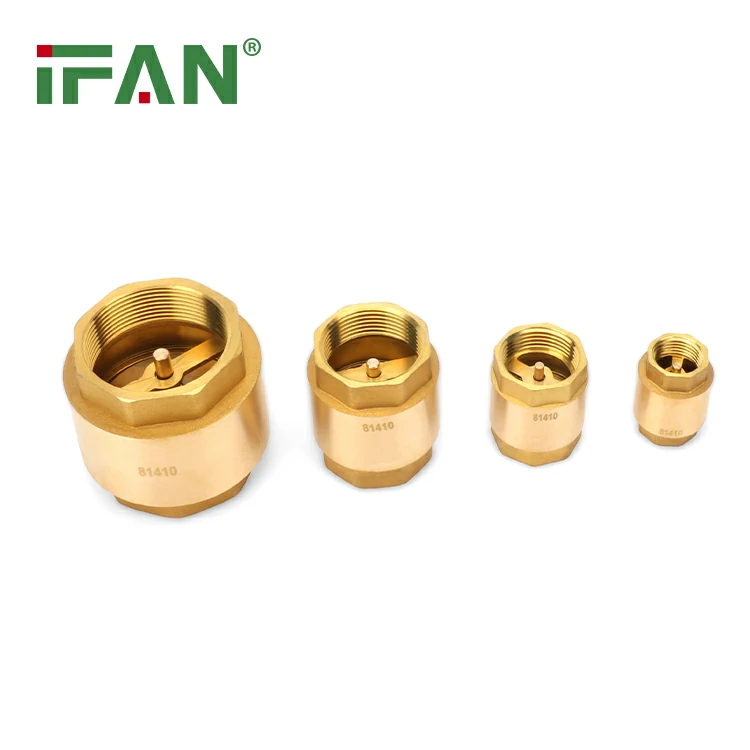Brass check valves are widely used in various industries and applications due to their durability, corrosion resistance, and reliability in preventing backflow. Here are the most common uses:
1. Plumbing & Water Supply Systems
- Residential/Commercial Plumbing – Prevents backflow in water lines to avoid contamination.
- Potable Water Systems – Used in drinking water pipelines (lead-free brass models).
- Water Heaters – Stops hot water from flowing backward into cold water lines.
- Boiler Systems – Protects against reverse flow in heating systems.
2. HVAC Systems
- Chilled Water & Heating Lines – Ensures one-way flow in hydronic heating/cooling systems.
- Pump Protection – Prevents damage from backflow in circulating pumps.
3. Industrial Applications
- Compressed Air Systems – Used in pneumatic systems to maintain airflow direction.
- Fuel & Oil Lines – Controls fuel flow in industrial machinery and lubrication systems.
- Chemical Processing – Handles mild chemicals (compatibility depends on brass grade).
4. Irrigation & Agriculture
- Sprinkler Systems – Prevents backflow in irrigation lines to avoid contamination.
- Drip Irrigation – Maintains water flow direction in farming systems.
5. Marine & Automotive
- Boat Plumbing – Used in bilge pumps and marine water systems (saltwater-resistant if dezincification-resistant brass).
- Fuel & Coolant Systems – Prevents reverse flow in automotive applications.
6. Gas Applications (Limited Use)
- Low-Pressure Gas Lines – Some brass check valves are rated for natural gas or propane (must comply with safety standards).
Key Considerations:
- Not for highly corrosive fluids (e.g., strong acids, seawater unless specially treated).
- Lead-free brass (DZR or CW602N) is required for drinking water in many regions.
View more:https://www.ifanfittings.com/


